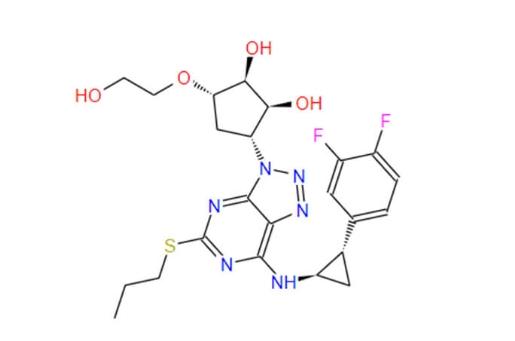Ticagrelor API, also known by its brand name Brilinta®, is a vital active pharmaceutical ingredient (API) used to prevent blood clots and reduce the risk of cardiovascular events like heart attack and stroke. This article delves into the science behind Ticagrelor, its clinical applications, and its position within the pharmaceutical landscape.
Understanding the Mechanism
Blood clots form through the clumping together of platelets, tiny blood cells responsible for clotting. Ticagrelor works by reversibly inhibiting the P2Y12 receptor on platelets. This receptor plays a crucial role in platelet activation and aggregation, the essential processes for blood clot formation.
By blocking the P2Y12 receptor, Ticagrelor effectively prevents platelets from clumping together, thereby inhibiting blood clot formation and reducing the risk of cardiovascular events.
Clinical Significance:
Ticagrelor has established itself as a mainstay in preventing blood clots in various clinical scenarios, including:
- Acute coronary syndromes (ACS): Ticagrelor is used in combination with aspirin to treat and prevent recurrent ACS events like heart attack and unstable angina.
- Percutaneous coronary intervention (PCI): Ticagrelor is administered before, during, and after PCI procedures to prevent stent thrombosis, a potentially life-threatening complication.
- Stroke prevention in atrial fibrillation: Ticagrelor is recommended for stroke prevention in patients with atrial fibrillation, especially those at high risk of stroke.
Advantages Over Other Antiplatelet Agents
Compared to other antiplatelet medications like clopidogrel, Ticagrelor offers several advantages:
- Faster onset of action: Ticagrelor works quickly to inhibit platelet aggregation, providing faster protection against blood clots.
- More potent inhibition: Ticagrelor exerts a more potent inhibitory effect on the P2Y12 receptor, leading to better clinical outcomes.
- Less prone to drug resistance: Ticagrelor exhibits less interindividual variability in response, reducing the risk of drug resistance compared to clopidogrel.
Conclusion
Ticagrelor API has revolutionized the management of cardiovascular diseases by offering a potent and effective tool for preventing blood clots and improving patient outcomes. With its established clinical efficacy, favorable safety profile, and growing demand, Ticagrelor API is poised to remain a cornerstone in the fight against cardiovascular events.

